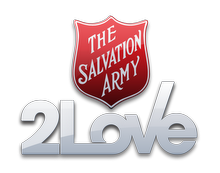a Jesus thought...
Well done, good and faithful servant; you have been faithful over a few things, I will make you ruler over many things. (Matthew 25:23)
a Godly thought...
Jesus does not want us to be moral people in a church that offers respectability. Jesus calls us to be holy, in a church that offers grace. (p28 Webb)
a leading thought...
Increasing internal coherence leads to more efficiency in all physiological systems and greater creativity, adaptability, and flexibility. (p331 Covey)
a Dave thought...
Today begins ACC (Aggressive Christianity Conference) Officers Day at Box Hill. Here is the topic we have given our 3 guests to respond to...
In The Starfish and the Spider: The Unstoppable Power of Leaderless Organisations, Ori Brafman and Rod A. Beckstrom explore the differences between traditional, centralised ‘CEO-led’ organisations (‘Spiders’) and diverse, decentralised, ‘catalyst-led’ movements (‘Starfish’).
‘In a way, the difference between traditional leaders and catalysts is like the  difference between Julie Andrews’ characters in The Sound of Music and Mary Poppins. In The Sound of Music, Maria enters a dysfunctional family, teaches the children a valuable lesson, convinces the father to pay attention to his kids, and shows the family how to get along.
difference between Julie Andrews’ characters in The Sound of Music and Mary Poppins. In The Sound of Music, Maria enters a dysfunctional family, teaches the children a valuable lesson, convinces the father to pay attention to his kids, and shows the family how to get along.
‘Likewise, Mary Poppins visits an equally (albeit charmingly) dysfunctional family, gets equally adorable children to behave, urges equally clueless parents to pay attention to their kids, finds equally effective ways for everyone to get along, and sings equally catchy tunes.
‘At the end of The Sound of Music though, Maria, after falling in love with the children and the father, sticks around. It’s obvious that from now on she’ll be the one running the show.
‘Mary Poppins, on the other hand, chim-chim-in-eys right out of London. It’s not that Mary Poppins has a fear of commitment. From the very beginning, it’s clear that she’s come to do a job. Her job is complete when the family can thrive on it’s own. Once she accomplishes her goal, she rides her umbrella into the sunset.
As John Cleary hosts this day we will be listening to General Eva, Jeff Lucas & Captain Paul Moulds respond to this article. I personally believe we have very few catalysts and there is a need to train, develop and deploy this type of leader in the Salvos today but I'll fill you in on their ideas in the morning.
Just a thought.






1 comment:
Dave, The Starfish and the Spider approach to leadership sounds helpful, but the author's efforts have mixed results. They do show how cooperative networks can benefit by operating without centralization. The trouble is they cannot explain how you can do it. The best they can do is explain hoiw to interupt or redirect a stafish network when its chewing up a companies profits. We need to remind ourselves that the church is not a business corporation and so borrowing leadership models from the corporate world simply will not work. Christian leadership has theological roots, an understanding that seems startlingly absent from contemporary discussion or practice. Our biblical and theological convictions and understanding shapes our actions as leaders as well as all the practical questions about how to lead the church. Starfish is a modern framework for forming the imagination of the corporate world. What is absent from such a framework is a theological accounting of Christian leadership as the calling to form alternative communities of the Kingdom shaped by the biblical and theological narrative.
WJE
Post a Comment